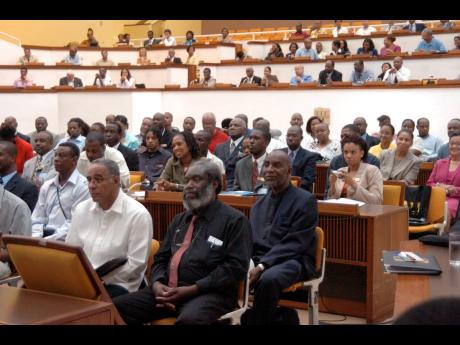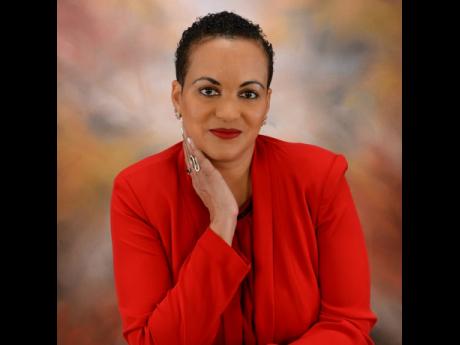Heather Russell | Don’t take the bait
Many Jamaicans living in the diaspora are watching with rapt attention and feel increasing concern over the nationalistic, even bordering on jingoistic rhetoric, that has emerged in Jamaica around the issues of dual citizenship, representational politics, and patriotism.
This spate of public “outings” of members of parliament on both sides, including recent self-disclosures for fear of being outed, must be called out for what they are brilliant and dangerously diversionary tactics, taking our energies, and focus away from the real bread-and-butter issues facing Jamaicans: full and unfettered access to proper healthcare, educational and employment opportunities, the right to safety and security, all while we await the release of statutory declarations and auditor general reports by the “integrity commission”, and the continued silence on the six parliamentarians who are under investigation.
We nah tek de bait.
Yes, I am Jamaican. Yes, I was born in England, as many Jamaicans were, during a time when our parents, usually our fathers, were given scholarships to study in the former colonial power as part of the nation-building strategy of a newly independent Jamaica. My father, the late Rev’d Dr. Horace O. Russell, had actually travelled to study in England in 1954, after earning his Bachelor of Divinity (London University external track) and being sent by his tutors to study at Regents Park College, Oxford to continue his theological training. In Daddy’s own words from his forthcoming memoir:
“I set off on the SS Cavina, a banana boat for England from Pier 2 in Kingston … The passenger list was a notable one. It included trained nurses and nursing recruits engaged by the British government to fill the vacancies created by the war. There were also onboard the recent Jamaica, Barbados and Trinidad national scholarship winners bound for study in Oxford and Cambridge. Onboard too were a number of educators who had received scholarships and bursaries to undertake courses in Britain in order to improve their expertise in light of the impending independence of the British Caribbean territories.”
It was while studying in England that he met and married my mother, Mrs. Beryl Russell. nèe Redman, eventually returning with her to Jamaica in 1958 to serve as chaplain at his alma mater, Calabar High School. Later, he, along with my mother, sister Elisabeth and brother Jonathan (both born in Jamaica), would return to England to earn a PhD in church history, with an emphasis on historical theology.
STILL MY COUNTRY
It was while they were living and studying at Oxford that I was born in 1970. The family returned to Jamaica in 1972, my mother and I as Britain-born citizens. Me with a British passport for a country, which even today, I have no recollection of ever having lived in. Jamaica may not be the place where my literal navel string is buried, but it is still my country; it is the place of my self-actualisation, where my spiritual and psychic being, identity and purpose, were formed, Jamaica is my groundation. My story is not unique, multiply me with the children already born, or conceived by the Caribbean nationals travelling to England on the SS Cavina in 1954.
Now, how would we ever even begin to disentangle (and why should we want to) the complexities of birthplace, passports, national belonging, and patriotism, in a country that is 62 years young, formerly a British colony, where, by the way, if you were born in Jamaica in 1960, you were a British subject.
This current noise that is dominating social media and preoccupying the hearts and minds of my fellow Jamaicans, must be called out for what it is at the end of the day. It is a discourse bereft of the historical complexities of who we have been, who we are, and how we have come to love and serve Jamaica, inside and outside of its borders.
OK, so what of P.J ’s remarks. The former prime minister is certainly entitled to his opinion, but on this point, I and many others must humbly disagree. I must also add that such a position feels personal and hurtful to those of us who have been optimistic at the concept of meaningful engagement with the Jamaican diaspora for the past 20 years.
Should the country change the constitution so as to narrowly define “allegiance and loyalty” in the terms that have been expressed, many of us in the diaspora, on both sides of the political spectrum, would view this as a significant and deeply troubling setback. Speaking, as a scholar, who studies the interrelationships between language, power, oppression, and representation, I am compelled to add that I am always concerned when nation-states engage in what might be described as a “nationalistic purity test” (I am thinking here of Bosnia, the Dominican Republic, Rwanda, and many others).
Whether we are talking dual citizenship at home or abroad, the country must decide once and for all what is to be the identity and character of the nation in relation to all of its citizens. Who is Jamaican enough to serve our beloved country? And in what terms and by what means are we prepared to carry out and institute such a national litmus test.
Heather D. Russell, Ph.D., is professor of literature at Florida International University. She is vice provost for faculty leadership and success. Send feedback to russellblakey23@gmail.com and columns@gleanerjm.com


